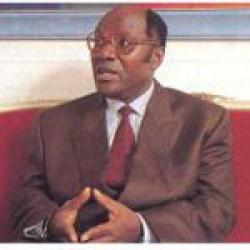
Published date
17 December 1993
After emerging as an independent country following French colonization, Ivory Coast came under the leadership of Félix Houphouët-Boigny. Known as the father of independence, he had formed the first agricultural trade union for African farmers. He established a strong relationship with the French government, which promoted the increase of the French population on Ivory Coast. Houphouët-Boigny ruled Ivory Coast autocratically, refusing press freedom and the establishment of any other political parties. He also spent exorbitant amounts of money on the transformation of his home village.
At independence, Ivory Coast was one of the most prosperous countries in French West Africa, but by the 1980s was crippled by world-wide recession and Houphouët-Boigny's reckless spending. As the country's external debt rose threefold, crime rose dramatically in the capital, Abijan. By 1990, a strike of civil servants and students led to the establishment of a multiparty democracy. Houphouët-Boigny passed away in 1993 and was succeeded by Henri Konan Bédié. Alassane Ouattara, who served as the prime minister under Bédié, had previously worked in a number of financial institutions and was said to have promoted principles that were economically sound. After a power struggle with Bédié, who excluded Outarra from running for the presidency on the basis of his ethnicity, Outarra resigned from his post. On 17 December 1993, Daniel Kaplan Duncan became the prime minister of Ivory Coast, and praised Outarra for his economic policy of privatization and austerity. He remained the prime minister until the military coup in 1999.
References
myAfrica AllAfrica,"Daniel Kablan Duncan",From: myAfrica AllAfrica,[Online],Available at: myafrica.allafrica.com,[Accessed : 25 November 2013]